|
Books Should Be Free Loyal Books Free Public Domain Audiobooks & eBook Downloads |
|
|
Books Should Be Free Loyal Books Free Public Domain Audiobooks & eBook Downloads |
|
Music Books |
|---|
Book type:
Sort by:
View by:
|
By: Thomas Hardy (1840-1928) | |
|---|---|
 Under the Greenwood Tree
Under the Greenwood Tree
This novel is subtitled The Mellstock Quire, A Rural Painting of the Dutch School. The Quire is the group of musicians who accompany the hymns at the local church and we follow the fortunes of one member, Dick Dewy, who falls in love with the new school mistress, Fancy Day. Another element of the book is the battle between the traditional musicians of the Quire and the local vicar, Parson Maybold, who installs a church organ. This battle illustrates the developing technology being introduced in the Victorian era and its threat to traditional country ways... | |
By: Jack London (1876-1916) | |
|---|---|
 The Acorn-Planter A California Forest Play (1916)
The Acorn-Planter A California Forest Play (1916)
| |
By: G. K. Chesterton (1874-1936) | |
|---|---|
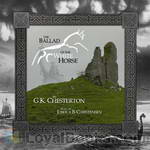 The Ballad of the White Horse
The Ballad of the White Horse
An English epic poem that follows the exploits of Alfred the Great in his defense of Christian civilization in England from the heathen nihilism of the North. Following a string of defeats at the hands of the invading Danes, a vision from heaven in the river island of Athelney fills Alfred with joy and hope. Though it gives no promise of victory in the coming struggle, it inspires him to rally his chieftains for a last stand against the invading hordes. His adventures lead throughout the country... | |
By: Joseph Conrad (1857-1924) | |
|---|---|
 Victory: An Island Tale
Victory: An Island Tale
Recollections of the life of Axel Heyst, one-time manager of the liquidated Tropical Belt Coal Company in a fictitious island in the Pacific. After retreating from society in response to his professional failures, the misanthrope is drawn back by a romantic affair. (Introduction by S. Kovalchik) | |
By: Aristotle (384-322 BC) | |
|---|---|
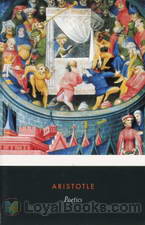 Poetics
Poetics
Aristotle’s Poetics from the 4th century B.C. aims to give a short study of storytelling. It discusses things like unity of plot, reversal of situation, and character in the context of Greek tragedy, comedy and epic poetry. But it still applies today. It is especially popular with screenwriters as seen in many script gurus’ how-to books. | |
By: Margaret Sidney (1844-1924) | |
|---|---|
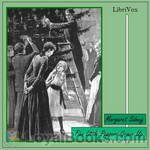 Five Little Peppers Grown Up
Five Little Peppers Grown Up
Five Little Peppers Grown Up continues the story of Ben, Polly, Joel, David, and Phronsie Pepper. Together with the Kings, the Whitneys, and other friends old and new, the Peppers learn and teach about life and love as they grow into adulthood. | |
By: William E. B. Du Bois (1868-1963) | |
|---|---|
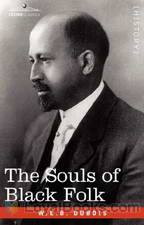 The Souls of Black Folk
The Souls of Black Folk
“Few books make history and fewer still become the foundational texts for the movements and struggles of an entire people....” One such great work was The Souls of Black Folk by William EB Du Bois. Published in 1903, it is a powerful and hard-hitting view of sociology, race and American history. It became the cornerstone of the civil rights movement and when Du Bois attended the first National Negro Conference in 1909, he was already well-known as a proponent of full and unconditional equality for African Americans... | |
By: Joel Chandler Harris (1848-1908) | |
|---|---|
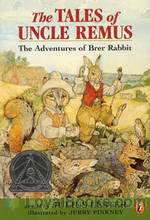 Uncle Remus
Uncle Remus
Bearing a striking resemblance to Aesop of Aesop's Fables fame, American author Joel Chandler Harris' Uncle Remus is also a former slave who loves to tell simple and pithy stories. Uncle Remus or to give it its original title, Uncle Remus: His Songs and His Sayings was published in late 1880 and received instant acclaim. The book was reviewed in hundreds of journals and newspapers across the country, leading to its immense success, both critical and financial. “Remus” was originally a fictional character in a newspaper column... | |
By: Willa Sibert Cather (1873-1947) | |
|---|---|
 The Song of the Lark
The Song of the Lark
| |
By: P. G. Wodehouse (1881-1975) | |
|---|---|
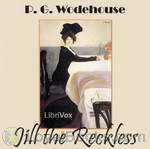 Jill the Reckless
Jill the Reckless
Jill had money, Jill was engaged to be married to Sir Derek Underhill. Suddenly Jill becomes penniless, and she is no longer engaged. With a smile, in which there is just a tinge of recklessness, she refuses to be beaten and turns to face the world. Instead she goes to New York and becomes a member of the chorus of "The Rose of America," and Mr. Wodehouse is enabled to lift the curtain of the musical comedy world. There is laughter and drama in _Jill the Reckless_, and the action never flags from the moment that Freddie Rooke confesses that he has had a hectic night, down to the point where Wally says briefly "Let 'em," which is page 313... | |
By: Rabindranath Tagore (1861-1941) | |
|---|---|
 First Jasmines
First Jasmines
Rabindranath Tagore, was a Bengali polymath who reshaped Bengali literature and music, as well as Indian art with Contextual Modernism in the late 19th and early 20th centuries. Author of Gitanjali and its "profoundly sensitive, fresh and beautiful verse", he became the first non-European to win the Nobel Prize in Literature in 1913. In translation his poetry was viewed as spiritual and mercurial; however, his "elegant prose and magical poetry" remain largely unknown outside Bengal. Tagore introduced new prose and verse forms and the use of colloquial language into Bengali literature, thereby freeing it from traditional models based on classical Sanskrit... | |
By: Israel Zangwill (1864-1926) | |
|---|---|
 Merely Mary Ann
Merely Mary Ann
| |
By: George Manville Fenn (1831-1909) | |
|---|---|
 The Queen's Scarlet The Adventures and Misadventures of Sir Richard Frayne
The Queen's Scarlet The Adventures and Misadventures of Sir Richard Frayne
| |
By: W. S. Gilbert (1836-1911) | |
|---|---|
 The Bab Ballads
The Bab Ballads
The Bab Ballads are a collection of light verse by W. S. Gilbert, illustrated with his own comic drawings. Gilbert wrote the Ballads before he became famous for his comic opera librettos with Arthur Sullivan. In writing the Bab Ballads, Gilbert developed his unique “topsy-turvy” style, where the humour was derived by setting up a ridiculous premise and working out its logical consequences, however absurd. The Ballads also reveal Gilbert’s cynical and satirical approach to humour. They became famous on their own, as well as being a source for plot elements, characters and songs that Gilbert would recycle in the Gilbert and Sullivan operas... | |
By: P. G. Wodehouse (1881-1975) | |
|---|---|
 The Little Warrior
The Little Warrior
| |
By: Robert Bridges (1844-1930) | |
|---|---|
 A Practical Discourse on Some Principles of Hymn-Singing
A Practical Discourse on Some Principles of Hymn-Singing
| |
By: Ludwig van Beethoven (1770-1827) | |
|---|---|
 Selected Letters of Beethoven
Selected Letters of Beethoven
A selection of Beethoven’s letters from the compilation by Dr. Ludwig Nohl and translated by Lady Grace Wallace. | |
By: Friedrich Nietzsche (1844-1900) | |
|---|---|
 Case of Wagner / Nietzsche Contra Wagner / Selected Aphorisms
Case of Wagner / Nietzsche Contra Wagner / Selected Aphorisms
A collection of three of Nietzsche's writings concerning the music of Wagner. In particular, he relates Wagner's music as degenerate, unrefined and unintelligent and relates it to a gradually degenerating German culture and society. The translator provides a detailed introduction. | |
By: John Meade Falkner (1858-1932) | |
|---|---|
 The Lost Stradivarius
The Lost Stradivarius
The Lost Stradivarius (1895), by J. Meade Falkner, is a short novel of ghosts and the evil that can be invested in an object, in this case an extremely fine Stradivarius violin. After finding the violin of the title in a hidden compartment in his college rooms, the protagonist, a wealthy young heir, becomes increasingly secretive as well as obsessed by a particular piece of music, which seems to have the power to call up the ghost of its previous owner. Roaming from England to Italy, the story involves family love, lordly depravity, and the tragedy of obsession | |
By: George Bernard Shaw (1856-1950) | |
|---|---|
 The Perfect Wagnerite
The Perfect Wagnerite
The Perfect Wagnerite: A Commentary on the Niblung's Ring (originally published London, 1898) is a philosophical commentary on Richard Wagner's Der Ring des Nibelungen, by the Irish writer George Bernard Shaw. Shaw offered it to those enthusiastic admirers of Wagner who "were unable to follow his ideas, and do not in the least understand the dilemma of Wotan." He interprets the Ring in Marxian terms as an allegory of the collapse of capitalism from its internal contradictions. Musicologically, his... | |
By: Friedrich Kerst | |
|---|---|
 Mozart, The Man and the Artist as Revealed in His Own Words
Mozart, The Man and the Artist as Revealed in His Own Words
Wolfgang Amadeus Mozart. His name is one of the most recognizable names in history and one of the most enduring of composers. At age 5, this “wunderkinder” took to the stage and began his life as a prolific and celebrated creator-genius of such luminous works the world has not known since. This collection of morsels taken from his personal letters is engaging and gives a look into the mind of the boy wonder. Was he mad? Was he miraculous? | |
By: Lilli Lehmann (1848-1929) | |
|---|---|
 How to Sing [Meine Gesangskunst]
How to Sing [Meine Gesangskunst]
| |
By: Horatio Alger (1832-1899) | |
|---|---|
 The Young Musician ; Or, Fighting His Way
The Young Musician ; Or, Fighting His Way
| |
By: Horatio Alger, Jr. (1832-1899) | |
|---|---|
 Grand'ther Baldwin's Thanksgiving, with Other Ballads and Poems
Grand'ther Baldwin's Thanksgiving, with Other Ballads and Poems
Horatio Alger, better known for his juvenile fiction, also penned some great poetry. His Ballads, including the 8 war poems and his odes, are collected in this volume. | |
By: Karl Wilson Gehrkens (1882-1975) | |
|---|---|
 Music Notation and Terminology
Music Notation and Terminology
Until relatively recently, music students at all levels of study—from the conservatories to public schools—had few resources available for the formal study of musical notation and terminology in the classroom. In fact, it was not until 1914, when Professor Karl Gehrkens at the Oberlin School of Music published this compilation of class notes and sources he collected over the years, that a uniform text became available for schools and universities everywhere. Since the publication of this monumental work, similar textbooks have emerged, but Dr... | |
 Essentials in Conducting
Essentials in Conducting
| |
By: Richard Wagner (1813-1883) | |
|---|---|
 Tristan and Isolda Opera in Three Acts
Tristan and Isolda Opera in Three Acts
| |
 My Life — Volume 1
My Life — Volume 1
| |
 On Conducting (Üeber Das Dirigiren) : a Treatise on Style in the Execution of Classical Music,
On Conducting (Üeber Das Dirigiren) : a Treatise on Style in the Execution of Classical Music,
| |
By: Hélène A. Guerber (1859-1929) | |
|---|---|
 Stories of the Wagner Opera
Stories of the Wagner Opera
| |
By: Kate Douglas Smith Wiggin (1856-1923) | |
|---|---|
 Bluebeard; a musical fantasy
Bluebeard; a musical fantasy
| |
By: Romain Rolland (1866-1944) | |
|---|---|
 Musicians of To-Day
Musicians of To-Day
| |